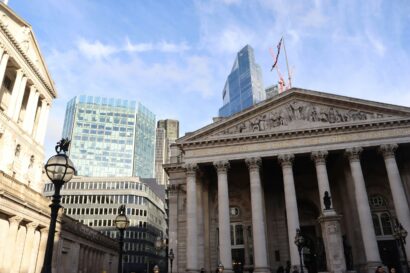AG INSIGHT | 25/04/2017
Seeking a sustainable finance plan for the UK

Fulfilling the ambitions of the UK’s environmental objectives will require significant investment in green infrastructure over the next decade. However, private finance is not currently being invested at the scale or speed required. Alex White introduces a one-year project considering how to increase this investment.
The latter half of 2017 should be a busy time for UK environmental policy. The much-awaited publications of BEIS’ Clean Growth Plan setting out how the UK will deliver its fourth and fifth carbon budgets in the 2030s, Defra’s 25 Year Plan for the Environment which aims to make us “the first generation to leave the environment in better state than we found it”, and the on-going consultation on the Industrial Strategy green paper should remain policy priorities after the summer, in spite of the early general election this June.
Fulfilling the ambitions of these plans and, ultimately, meeting the UK’s environmental objectives will require significant investment in green infrastructure over the next decade. It is estimated that another £100bn of investment will be needed to 2020 in low carbon electricity, as well as £40-60bn investment to insulate UK’s housing stock, and potential for conservation finance could reach an estimated US$200-400bn. Whilst there is no lack of money available in the financial markets, private finance is not currently being invested in these projects at either the scale or speed required, and public funds cannot meet this investment gap.
As part of its involvement in the Centre for the Understanding of Sustainable Prosperity (CUSP) led by the University of Surrey, the Aldersgate Group is launching a one-year project to understand how to increase private investment in green infrastructure. We will be looking at the most material barriers and considering the solutions to incentivise greater investment in the projects that will underpin the UK’s upcoming policy packages – like retrofitting homes and commercial buildings, investing in natural flood management and building new ‘circular’ business models.
Following initial discussions with a range of investors and project developers, here’s what we already know:
- Above all, greater policy clarity and stability is needed, both to generate a pipeline of investible projects and to reduce regulatory risk which drives up the cost of capital.
For example, a detailed Clean Growth Plan with clear commitments in key sectors and on timelines is essential to boost investor confidence in the areas of low carbon and energy efficiency infrastructure – particularly for risk-averse investors like pension funds. Intelligent use of public funds can be leveraged into complex projects to drive early stages of technological development, accelerating cost reductions and reducing risk.
- Aggregating small, individual projects into larger investment packages will be key to bringing in institutional investor-scale finance, structured in a way which is familiar to these investors.
This is particularly true for natural capital improvements and domestic energy efficiency retrofits: for example, insulating individual houses generates returns of a few thousand pounds in saved energy costs, which is at too small a scale for large investors. Retrofitting a whole street however can generate hundreds of thousands of pounds in saved costs in aggregate, which is more in fitting with their needs.
- There is a significant inconsistency in expertise on low carbon and ‘green’ opportunities across the finance community, particularly amongst financial intermediaries.
A recent E3G report found that 1/3 of UN Principles of Responsible Investment (PRI) signatory investors do not employ a single Environmental, Social and Corporate Governance (ESG) investment specialist, and a further 20 per cent only employ one. This partly arises due to a lack of training on sustainability issues in financial qualifications, but also due to insufficient resources and will to build this expertise, which is fundamental in managing risk and bringing down the cost of capital.
- The short-termism of financial markets often discriminates against ‘green’ projects.
Quarterly reporting and assessment rewards short-term gains over long-term value: 80 per cent of CFOs would sacrifice future economic value to satisfy investor expectations for short term returns. However, ‘green’ projects tend to operate on longer timescales – it can take decades to build and generate returns on investments in projects like offshore wind and natural capital improvements
- Finally, investors lack the information needed to allocate capital effectively.
There is currently insufficient reliable and comparable data for investors to understand how much of a company’s revenues come from ‘green’ sources, how companies could be vulnerable to climate risks and what the financial implications of these risks are, and how both corporates and investors are planning for a 2°C constrained world. The work of the Financial Stability Board’s Task Force on Climate-related Disclosure is making strides in addressing this challenge.
That is our starting point. And what a time to start: investments in low carbon energy are due to decline by 95 per cent between 2017 and 2020, just as a huge injection of finance is needed in resilient infrastructure. If the Industrial Strategy, ERP and 25 Year Plan are to catalyse meaningful change we need to start answering: How do we make energy efficiency projects more attractive to investors? How can a revenue model for natural capital projects be generated? How do we reduce risk (perceived and actual) for investment in new resource efficient business models?
The Aldersgate Group’s cross-sectoral expertise is our greatest strength. So, over the next year we will work closely with actors from the finance, civil society and business community to better understand the barriers they face across the investment landscape, and the solutions they see. We will explore whether changes in policy, investment or project development can increase private money going into green infrastructure, to help the UK meet its environmental needs.
Alex White is Policy Officer at the Aldersgate Group, leading on its CUSP project.



